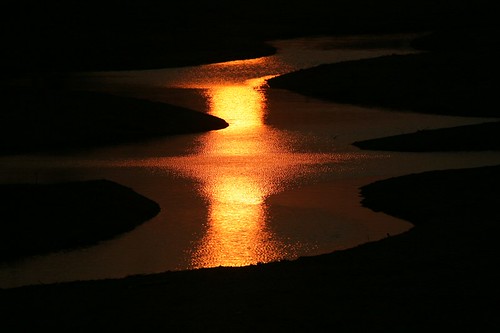tags: The Sun, Mary Oliver, poetry, National Poetry Month
April is National Poetry Month, and I plan to post one poem per day, every day this month (If you have a favorite poem that you'd like me to share, feel free to email it to me).
The image was kindly provided by my friend, Dave Rintoul, who snapped that picture when we were visiting the Platte River in Nebraska, watching the migrating sandhill cranes.
Today's poem was one I chose for Earth Day, especially for these ending lines;
or have you too
turned from this world--or have you too
gone crazy
for power
for things?
This poem was written by one of my favorite living poets, Mary Oliver, whose every poem fills me with the sublime, and it seemed appropriate for this day;
The Sun
Have you ever seen
anything
in your life
more wonderful
than the way the sun,
every evening,
relaxed and easy,
floats toward the horizon
and into the clouds or the hills,
or the rumpled sea,
and is gone--
and how it slides again
out of the blackness
every morning,
on the other side of the world,
like a red flower
streaming upward on its heavenly oils,
say on a morning in early summer,
at its perfect imperial distance--
and have you ever felt for anything
such wild love--
do you think there is anywhere, in any language,
a word billowing enough
for the pleasure
that fills you,
as the sun
reaches out,
as it warms you
as you stand there,
empty-handed--
or have you too
turned from this world--
or have you too
gone crazy
for power
for things?
-- Mary Oliver, New and Selected Poems: Volume One (Beacon Press; 2004).


Dave's shot of a sunset over a river is wonderful; the scene is truly striking, mysterious, beautiful, majestic akin to the smile of Mona Lisa by Leonardo da Vinci in my mind. It may exert a different effect depending on my mood at later times when I reencounter. Photography can be an art, if we look at the product, not the technology of it. But then, the MoMa in NYC now exhibits newest arts that directly utilize technologies and if you can't understand physics, and math and geometry, you could not bring them forth. More and more it appears that arts and sciences intermingle as the races and cultures do.